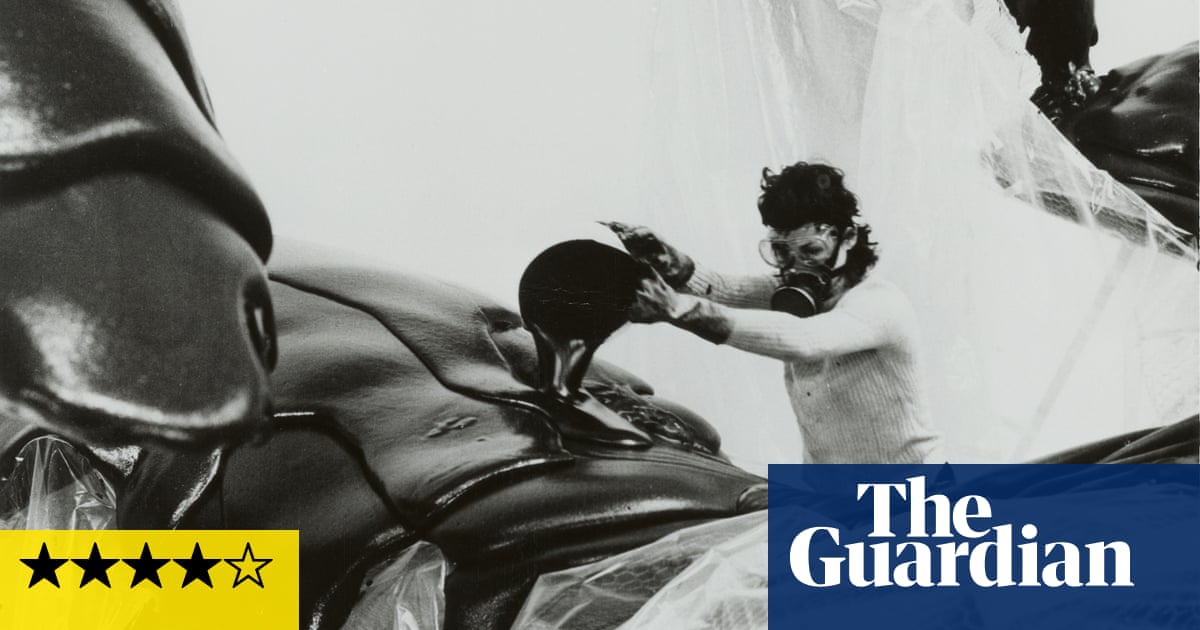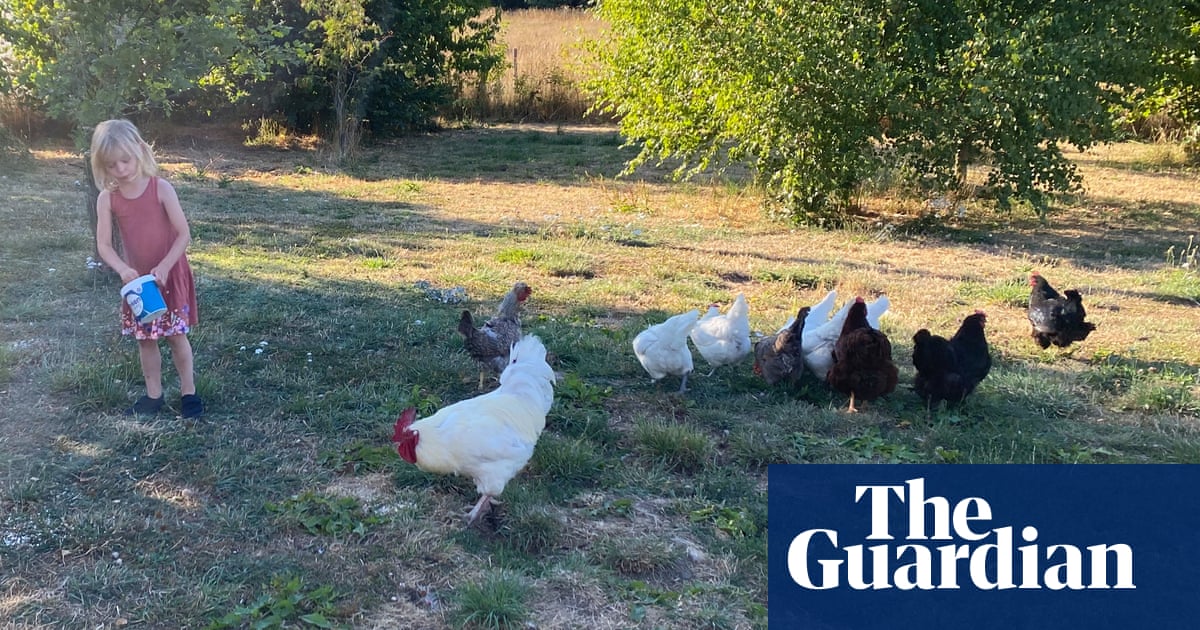
pening its doors in 1970, Birmingham’s Zella Studios played home to a who’s who of the city’s musical greats: Black Sabbath, Band of Joy, the Spencer Davis Group. But the Bristol Street institution was also home to one of the most remarkable and unfairly overlooked albums of the 1980s: Disco Se Aagay, by teenage British-Pakistani sibling duo Feisal Mosleh and Nermin Niazi.
“When I look back now I’m surprised at how much confidence we had,” Niazi says. “I remember walking in and feeling absolutely at home. The smell of the studio stays with me even now. There’s something very comforting and secure about it.”
Recorded in the summer of 1984, Disco Se Aagay – released under Niazi’s name – sought to combine the siblings’ Pakistani musical heritage with the disco, new wave and synthpop that enchanted them in the UK. They married Urdu lyrics and post-punk ingenuity, Hindustani melodic scales and state-of-the-art synthesisers, to make an LP that perfectly harmonised east and west – but failed in both markets. “Even after all these years I haven’t really come across anything else that’s similar to it,” her brother Mosleh admits. “And that includes music we’ve made ourselves! It’s a very unique snapshot of a certain time in our lives and our intake of both cultures.”
Now, 37 years on from its release and instant obscurity, Disco Se Aagay is finally re-emerging. Discostan, a radio show and club space dedicated to celebrating the music of a region they term as Swana (south and west Asia and north Africa), is reissuing the album. Founder Arshia Haq recalls stumbling upon it in a second-hand record store on New York’s Lower East Side. “When I first saw the record sleeve I thought to myself: is this gonna be good, or so-bad-it’s-good?” she laughs. “When I dropped the needle on the record I was blown away by a feeling of: what is this? It’s in my native language but there’s also this new-wave-synth, kind-of-bedroom feeling to it and it’s a little bit more experimental than other south Asian music that I’d heard.”
“It’s a British classic,” adds Discostan’s Jeremy Loudenback. “It’s a record that should be re-evaluated and celebrated and brought into the conversation when we think of that great heyday of British new wave.”
Born in Lahore, Mosleh and Niazi are the children of Pakistani musical royalty – their father a prolific Lollywood composer, Moslehuddin, and their mother an adored singer, Nahid Niazi, who would often perform in films scored by her husband; together they became the nation’s first ever children’s TV hosts. “Some of my earliest memories of Pakistan are being in film and TV studios,” Mosleh recalls. “Then we came to England when I was six years old, and it felt very different not having our large extended family around us.”
Settling in Birmingham in the mid-1970s, music continued to be the backbone of family life. When their parents weren’t touring the UK (performing at London’s Royal Albert Hall and Barbican among a swathe of notable venues), they were rehearsing in the family home or hosting the biggest names in Pakistani pop for their visits to the UK. “I remember being young and sitting with very famous people like [south Asian pop star] Nazia Hassan,” says Mosleh. “We thought this was quite normal until we got to a certain age and it dawned on us that our parents were slightly unusual.”
On the other side were myriad European influences (“groups like Pet Shop Boys, Depeche Mode, Japan and even Abba”) that had just as big an impact on their sound. When they finally took to the studio to record Disco Se Aagay – Niazi aged 14 and Mosleh aged 19 – the idea was to bridge these two worlds. Translating to “beyond disco”, the album is a candid expression of the dual personality millions of members of the diaspora are forced to address during their teenage years. The Urdu lyrics and south Asian pop stylings represent the comfort and familiarity of their upbringing; the synth-driven energy signifies the allure of western culture and desire to break the mould.
With Niazi singing and Mosleh responsible for an array of instruments and hardware, a liberated quality permeates the record. “We were doing a lot of crazy things when we were just school kids,” Mosleh enthuses. “And we were using the same stuff that some of the top bands were using at that time: the X7, the DX1, the DX5, some of the Yamaha and Roland series.”
Laid down in Zella Studios, the standout track Sari Sari Raat (translating to All Night Long) channels the punchy dancefloor energy of Italo disco and hi-NRG; Dil Mein Dil Mein (In My Heart) has all the glossy synth opulence of Spandau Ballet; Hum Tum (You and Me), the album’s most experimental track, weaves and overlaps Niazi’s vocals in a way that was completely unique for the time.
Despite the abundance of talent, innovation and youthful exuberance, they lament the absence of any real promotion or marketing campaign from Oriental Star, the local label that released the album. But as Mosleh says: “Even if it had got UK plays I think people would’ve been asking: what is this? It didn’t fit into the traditional Indian and Pakistani sounds nor into the UK pop of the time because of the language.”
When Niazi returned to school after the summer holidays she was reluctant to divulge her creative endeavours with any of her classmates. “I just thought, ‘They’re not going to understand.’ The 80s was a different world to the broad-minded one we live in now.”
The album did generate interest in their native Pakistan, resulting in TV appearances and a flurry of magazine front covers, but there was also a backlash from some of the more conservative pockets of society. “I was a 14-year-old Asian girl singing about love,” says Niazi, “which some people interpreted as me encouraging children to date.”
Mosleh adds: “The Islamisation of Pakistan had started and that’s where this negativity came from. I’m kind of surprised that a lot of conservatism has remained in these communities – it always seemed very backwards in the way they were treating music. Nevertheless, we ignored it as we thought we were doing something great.”
The LP was to be their only release, not because of religious pressure, but rather life getting in the way. Mosleh started a new life in the US while Niazi, after dabbling in TV and radio after leaving school, eventually joined the Metropolitan Police in London, where she has remained ever since. “It’s true that life just takes over but if I’m honest, deep down, I lost a little bit of hope due to our album pretty much disappearing into obscurity,” she concedes. She says the experience left her “feeling like I was in this no man’s land in the middle, and I found it very difficult throughout my teens. But as I got older I realised that it’s not actually a battle. It’s about choosing and embracing the positive elements from both sides.” A tactic, of course, that she and her brother had already mastered.












